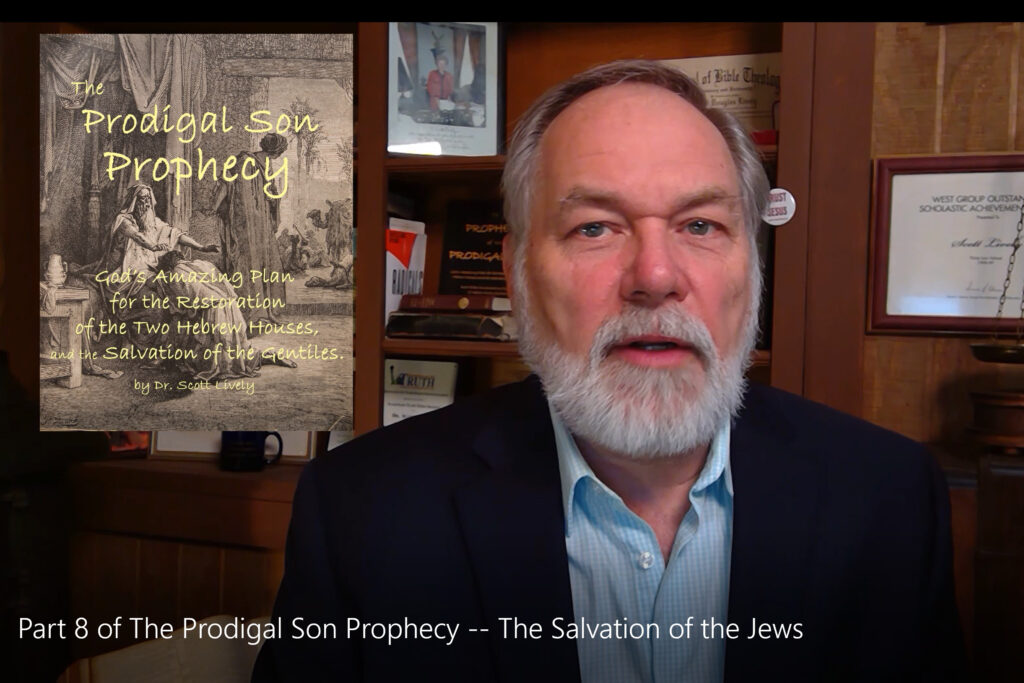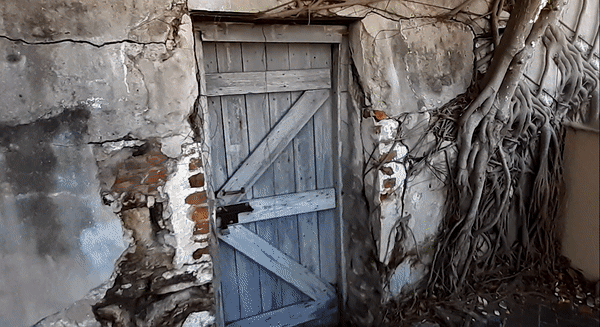
The Salvation of “the Jews”
In Matthew 23:37-39, near the end of His earthly ministry, Jesus passed a sentence upon the House of Judah. Standing on the Mount of Olives, looking across the narrow Kidron Valley at the Holy City spread out before Him, he lamented:
“Jerusalem, Jerusalem, who kills the prophets and stones those who are sent to her! How often I wanted to gather your children together, the way a hen gathers her chicks under her wings, and you were unwilling. ‘Behold, your house is being left to you desolate! For I say to you, from now on you will not see Me until you say, ‘Blessed is He who comes in the name of the Lord’ ”
Three and a half years later the implementation of that sentence would be initiated and the long 2000-year “Age of the Gentiles” would begin upon the final indictment of the Jews by Stephen, the first martyr of the church (Acts 7). And the man who orchestrated Stephen’s murder, Saul of Tarshish, would very soon become Paul (Acts 9), the Apostle to the Gentiles (Romans 11:13).
That gentile age is nearing its end today, as we await the return of Christ to His city when indeed, the Jews will finally recognize their Messiah and “weep for Him as for an only son” (Zechariah 12:10), and “all Israel will be saved.” (Romans 11:26).
“And I will pour upon the house of David, and upon the inhabitants of Jerusalem, the spirit of grace and of supplications: and they shall look upon me whom they have pierced, and they shall mourn for him, as one mourneth for his only son, and shall be in bitterness for him, as one that is in bitterness for his firstborn.” (Zechariah 12:10, cited in John 19:37).
“And the Redeemer shall come to Zion, and unto them that turn from transgression in Jacob, saith the LORD” (Isaiah 59:20, cited in Romans 11:26).
On the Day of Atonement, the last of the 10 Days of Awe, “all Israel” will receive their salvation when the Messiah appears to rescue Jerusalem from the army of the wicked which have overrun it (Zechariah 14).
“And it will come about that whoever calls on the name of the LORD will be delivered; For on Mount Zion and in Jerusalem there will be those who escape, As the LORD has said, Even among the survivors whom the LORD calls” (Joel 2:32).
These are represented by the 144,000 Hebrews, 12,000 from each of the 12 tribes of Jacob: faithful Torah-believing men who were sealed against death by God in order to survive the time of wrath.
“And I saw another angel ascending from the east, having the seal of the living God: and he cried with a loud voice to the four angels, to whom it was given to hurt the earth and the sea, Saying, Hurt not the earth, neither the sea, nor the trees, till we have sealed the servants of our God in their foreheads. And I heard the number of them which were sealed: and there were sealed an hundred and forty and four thousand of all the tribes of the children of Israel” (Revelation 7:2-4).
The “seal of the living God” is His name, written upon their foreheads:
“And I looked, and, lo, a Lamb stood on the mount Sion, and with him an hundred forty and four thousand, having his Father’s name written in their foreheads. And I heard a voice from heaven, as the voice of many waters, and as the voice of a great thunder: and I heard the voice of harpers harping with their harps: And they sung as it were a new song before the throne, and before the four beasts, and the elders: and no man could learn that song but the hundred and forty and four thousand, which were redeemed from the earth” (Revelation 14:1-3).
These two passages, offering snapshots of the Hebrew elect before and after their rescue by the Messiah, evoke a pattern seen in the Passover and subsequent exodus from Egypt, and (to a lesser extent) the rescue of Lot from Sodom, but most especially Ezekiel’s vision in Ezekiel 8-9, including a description of the sealing of the righteous Jews before the execution of God’s wrath:
“And the LORD said unto him, Go through the midst of the city, through the midst of Jerusalem, and set a mark upon the foreheads of the men that sigh and that cry for all the abominations that be done in the midst thereof. And to the others he said in mine hearing, Go ye after him through the city, and smite: let not your eye spare, neither have ye pity: Slay utterly … but come not near any man upon whom is the mark; and begin at my sanctuary” (Ezekiel 9:4-6).
Interestingly, what defines the righteousness of these men is not their actions, but the grief in their hearts over the apostasy that surrounds them. This was also true of covetous, incestuous Lot who nevertheless is described as righteous in 2 Peter 2:9:
“He rescued righteous Lot, oppressed by the sensual conduct of unprincipled men (for by what he saw and heard that righteous man, while living among them, felt his righteous soul tormented day after day by their lawless deeds), then the Lord knows how to rescue the godly from temptation, and to keep the unrighteous under punishment for the day of judgment.” …
This has been an excerpt from Dr. Lively’s 8th installment of his book. To read and/or view all published installments, go HERE. Or hover your cursor over Scott Lively Books in the button bar above and select The Prodigal Son Prophecy from the dropdown menu.



